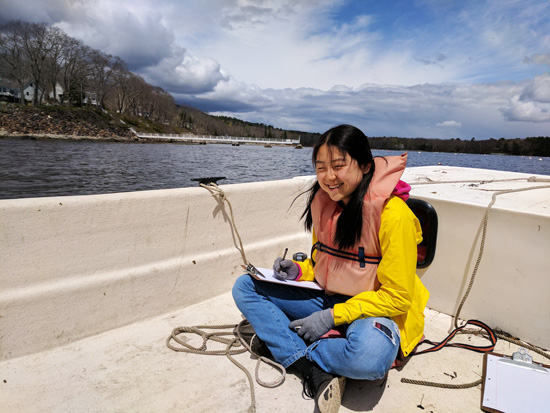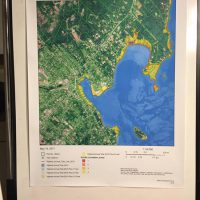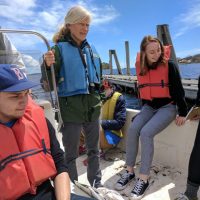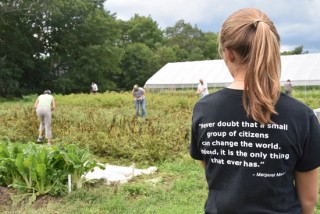In Watershed School’s Global Climate Change course, juniors are introduced to the science of past and present changes, how human societies could be affected in the future, how governments are responding to what is known, and the issue’s ethical ramifications.
It culminates in a class project with a practical component that also educates the public. Students present their findings at the Camden Public Library, offering data and possible solutions. Last year’s efforts prompted the reactivation of the Camden Energy and Sustainability Committee and provoked discussion at the Select Board level about potential response. Faculty member Janet McMahon, who teaches the course, remembers one selectman asking: “Why haven’t we heard this before?”
Each year the class incorporates a different energy-related project that affects their local community. In 2017, students took on sea level rise, researching the causes—including projections for the northeastern U.S. during this century—and potential impacts of different scenarios on Camden’s waterfront. They also explored how different areas around the Gulf of Maine are addressing what many believe to be the biggest environmental challenge facing their coastal communities in the coming decades.
“When the students actually become part of the transition from dependence on fossil fuels to reliance on renewables and can see the fruits of their labor, the issue of climate change becomes an exciting one, full of possibilities,” says Ms. McMahon. Senior Meiuye Liu says the course encouraged her “to make an effort to bring change wherever possible.”
Their efforts are continuing. The 2018 project will be chosen over the next month.






